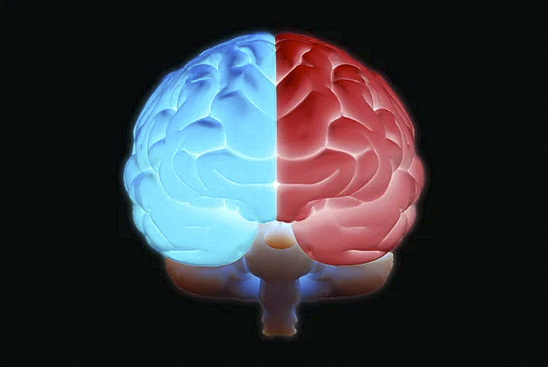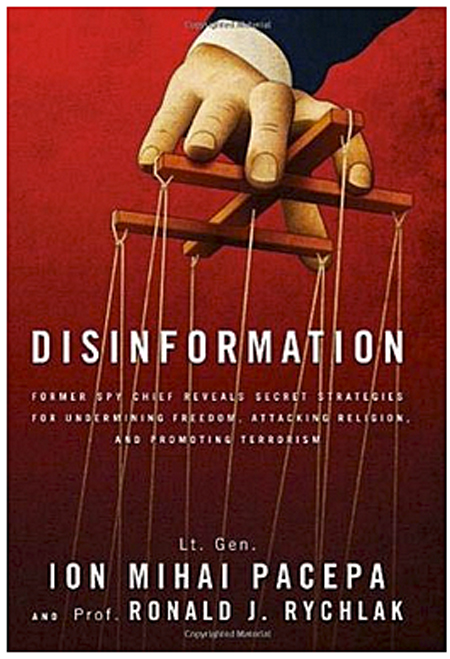
- Articles
When Rejecting Orthodoxy Becomes a Mental Illness by Russell L. Blaylock, M.D.
A recent article appearing in the magazine Scientific American Mind caught my attention as a perfect example as to how science (scientism) is being used to demonize those who disagree with a particular issue. The article, “What a Hoax,” appeared in the September/October 2013 issue. In fact, the article goes far beyond just demonizing dissenters of the orthodox opinion; incredibly, it classifies them as mentally ill and a danger to society. This of course reminds one of a similar methodology used in communist countries, such as the Soviet Union, Maoist China and communist Cuba.

Recognizing that the gulag had its limitations and was somewhat embarrassing when discovered by the West (through Aleksandr Solzhenitsyn’s three volume Gulag Archipelago), the Soviet leader Leonid Brezhnev switched to the use of the psychiatric prisons. Not only were dissidents marked as “enemies of the state,” they were reclassified as dangerous psychopaths and delusional. Incredibly, that is exactly what a group of psychiatrists and the author of this article, one Sander van der Linden, a doctoral candidate in social-environmental psychology at the London School of Economics, are proposing.
The introductory sentences demonstrate a principle of orthodoxy, that is, one must assume that the conclusions of the orthodoxy are always correct. Further, the orthodoxy never has to defend its position. For example, the article begins with — “Did NASA fake the moon landing? Is the government hiding Martians in Area 51? Is global warming a hoax? The answer to these questions is, ‘No’…”
Notice that the answer to these loaded questions is emphatic, but never throughout the entire article did the author ever defend this bold answer by the one thing the critics of “conspiracy theory” insist upon — facts. One should also note the choice of conspiracy statements — the moon landing and space aliens, two things that would to the reader be associated with a flake, are chosen to be the lead in. This is followed by the principle reason this article was written — to portray those who do not accept the theory of global warming as true as being just as deluded as those who believe in this first two statements and, as you will see — mentally ill.
The very next paragraph hammers this point home. He writes: “Many scholars dismiss conspiracy theorists as paranoid and delusional. Psychological data bolster their case: people who harbor conspiracist [sic] thoughts are more inclined to paranoid ideation and schizotypy, a mild form of schizophrenia.” (Emphasis added).
Here we see the use of the term “many” to describe psychiatrists who classify conspiracy theorists as the “lunatic fringe.” This gives the impression that we are speaking of a large percentage of psychiatrists, when in fact, if based just on scientific evidence, the number would be quite small. This tactic is to give the argument greater weight without having to resort to scientific evidence. Even if most did believe the conspiracy theorists are loony hypothesis, we must also appreciate that at one time most orthodox scientists believed that brain cells could not be regenerated in the adult — even until quite recently. Truth, as such writers have difficulty understanding, is not discovered by a majority show of hands.
Linden then declares their main concern — the conspiracy theorists become “disengaged” from “issues of great political importance.” What this seems to mean is that they refuse to go along with the plan of those proposing such theories as global warming, which, as he admits, will require a radical restructuring of society. In other words, these are not minor debating issues of academic science; rather these are beliefs that can radically alter our very lives, our freedom and our fortunes. In truth, he is less concerned with the conspiracy theorists themselves than he is with those they influence. The battle is between who’s theory is to be dominant.
Next, Linden assures us that the conspiracy theorist is not concerned with “science”, but rather “Conspiracy theorists propose, without having collected rigorous data to support their case, that powerful people or groups are secretly plotting to accomplish some sinister plot”. This is a powerful statement that more resembles carefully constructed techniques of influence psychology than a serious statement of fact. If one reads the extensive literature surrounding global warming conspiracy theory and concludes there is nothing there, then so be it. Yet, most telling is that the left is trying desperately to convince the public not to examine the data being offered by the conspiracy theorists, mostly out of fear that they might be convinced.

I refer to a similar psychology in the fluoride debate in my book, Health and Nutrition Secrets (2002), in which a class of dental students was told to never engage in a debate with anti-fluoridationists. Why? Because the professor explained, you will ultimately lose the debate. Instead, they were told, they should only present their side of the story to the public unopposed.
Science has always been about critical debates between opposing views. Each side presents their data openly in a forum or series of forums, thus allowing the truth to come forward. If one examines, for example, the evolution debate, one sees every method available being used to prevent the public from being exposed to even the flaws of the evolutionary theory, far less its substance. For example, these scientists, who love to proclaim their open mindedness, push for legislation that prevents even a critical examination of creation theory or a presentation of the flaws of Darwinism. Recently, one of the science educators stated in a science publication that students entering the university should be questioned about their views of evolution and if they are found to hold creationist ideas they should be encouraged to seek non-science majors. In his own way, this seems to be what Linden is saying.
The article contains incredible abuses of logic. For example, Linden quotes sociologist Ted Goertzel of Rutgers University as concluding that people who have “decided that officialdom is deceptive in one case, other disturbing world events may appear to have similarly hushed-up origins.” Yet, to do otherwise would demonstrate naivety and an abandonment of logic. To believe a scoundrel, would be to fall victim of every scam artists and rouge in the universe.
A growing body of collectivist literature espouses a concern that the public is suspicious of science and especially scientists themselves. Linden states, “When more than a third of the population doubts the veracity of climate scientists’ conclusions…the repercussions for society can be grave.” This statement makes the declaration that the debate over climate change is finished and settled and no more discussions are needed.
Despite the fact that the proposed solutions to climate change demand a virtual destruction of the free market and the private ownership of private property, this writer and the climate change scientists in general insist that we charge ahead. Repeatedly, Linden frames the debate as the danger being presented when a segment of the population fails to believe the proposed justification for radical change in society — that is, doubters are standing in the way of a political revolution. He says, “This result is alarming because it suggests that every cursory defense of conspiracy theories can sow mistrust and divert attention from critical scientific, political and social issues.”
Common sense and good logic should caution one to be very careful before proposing such a radical social change that can not only lead to socialist enslavement of millions, but also is most often irreversible. Revolutions are easy to instigate but it is very difficult to reverse, as history should have taught us. Many “scientific” social engineers in the West accepted Marxism without any critical analysis and as a result over a billion people were enslaved, lives were destroyed, the Soviet Union and China were denied almost a hundred years of industrial and technological progress and over 300 million people were systematically exterminated by these governments. The price of accepting social theories can be quite high.
Linden then makes the incredible statement that neutralizing the conspiracy theories can be “fiendishly difficult” and that attempting to do so can actually have the “…unfortunate side effect of legitimizing them at the same time.” Why would defending one’s position be so difficult, especially considering his statement that they have all the facts? I watched the DVD documentary film Loose Change and then later a special TV program refuting the film.
The defense of the deniers of the films findings, if you can call it that with a straight face, was laughable at best. Loose Change asked a number of very critical questions as well as providing a great deal of information denied to the general public by the media and “official” sources. No evidence to refute most of the questions and allegations proposed by the Loose Change film were ever presented — rather the commentator just made the comment that each statement was “not true,” just as we see in this article. We see the same thing with other issues, such as climate change, vaccines, mercury toxicity, chemtrails and the disastrous events during our many wars — Korea, Vietnam, Afghanistan and the Gulf Wars.
Finally, the author of this diatribe concludes that conspiracy theorists are just simpletons — they need a less confusing world so they are attracted to theories that simplify world events. Otherwise, we are told, the world is fill with the complexities of spontaneously occurring events that overwhelm the minds of mere mortals. Even traditional, orthodox history books are filled with stories of conspiracies at every level of society, yet, somehow in the minds of the left this is all to be ignored.

We also have the experience of those living in the various communist movements in the world, which are predicated on a massive on-going series of conspiracies, each based on disinformation, deceptions, and propaganda. This is confirmed by their own literature as well as hundreds of defectors from these communist systems, each in a position to know, including the owner of this website, Dr. Miguel Faria, author of Cuba in Revolution: Escape From a Lost Paradise (2001). Take, for example, the information from the recently released book Disinformation (2013) by Romanian defector Lieutenant General Ion Pacepa, one of the highest-ranking defectors from the communist system, or the DVD interview with defecting Soviet spy-master and KGB propagandist Yuri Bezmenov, both of whom told of a world-wide conspiracy to not only deceive the West, but also to enslave it. Are we to assume that this information was generated only in the minds of “fringe personalities” and people suffering from “schizotypal personality disorder”?
One theme recurring in this article and other anti-conspiracy literature is that the conspiracy theorist believes that “powerful people or groups are secretly plotting to accomplish some sinister plot.” A close examination of the major sources of conspiracy theories finds that those engaged in serious studies of events in both history and contemporary times, base their conclusion on careful documentation, testimonies of first-hand witnesses in high positions, and careful analysis of this data based on accepted principles of logic and reason.
What we often see is that critics of conspiracy theories rarely examine the evidence being presented. I recall a young girl working in my office making a terrible face when I mentioned a well-known conservative leader’s name, as if she had suddenly bitten into a lemon. When I questioned her about her reaction, she stated that he was a racist and an extremist. I then asked if she had ever heard one of his radio addresses or had ever read anything he had written. She looked sheepish and said, “No.”
She was taking the word of the person’s critics to arrive at a conclusion concerning the content of his beliefs. We see this all the time. I have read a great deal of the writings of communist leaders and other prominent collectivists, but I also examine not only just the words they expel but I carefully evaluate their actions. “By their fruit, you shall know them,” is an admonition we should all follow.
The most dangerous thing in this Scientific American Mind article is the implication that to disagree with the conventional wisdom, that is the orthodoxy, is evidence of a serious mental aberration — a mental illness that even possesses a name — schizotypal personality disorder. In the George Orwell’s novel 1984, he defines orthodoxy as “not having to think,” implying that others, the elite, have performed that vital function for you — your job is to be obedient.
Ludwig von Mises states that in a socialist society the most dangerous man is one that can think critically. This article epitomizes this thinking by the left. The stage is being set to declare those who disagree with the orthodoxy as not only being mentally ill, but also as a danger to the social good — the greater good. In the former Soviet Union, to believe in God was proof that one was mentally ill because the state had declared there was no God.
Written by Russell L. Blaylock, MD
Dr. Russell L. Blaylock is President of Advanced Nutritional Concepts and Theoretical Neurosciences in Jackson, Mississippi. He has written numerous path-blazing scientific papers and many books, including Excitotoxins: The Taste That Kills (1994), Bioterrorism: How You Can Survive (2001), Health and Nutrition Secrets (2002), and Natural Strategies for Cancer Patients (2003). He is Associate Editor-in-Chief and a Consulting Editor in Basic Neuroscience for Surgical Neurology International (SNI).
This article may be cited as: Blaylock RL. When rejecting orthodoxy becomes a mental illness. Hacienda Publishing.com, August 15, 2013. Available from: https://haciendapublishing.com/when-rejecting-orthodoxy-becomes-a-mental-illness-by-russell-l-blaylock-m-d
Copyright ©2013 Hacienda Publishing Inc.